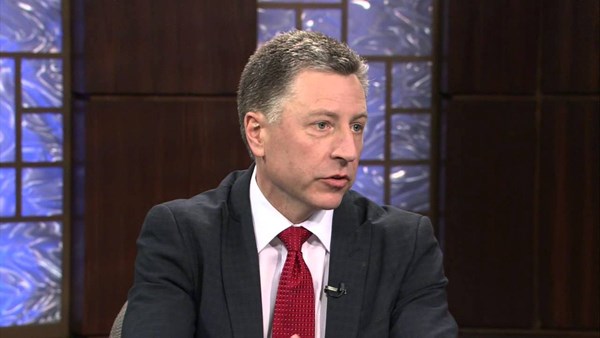Volker: Crimea sanctions on Russia will remain until ‘de-occupation of peninsula'
US Special Representative for Ukraine Kurt Volker said that the sanctions that have been imposed on Russia due to its annexation of Crimea will remain in force until Russia has fully de-occupied the peninsula.
When asked for his opinion on factoring Crimea out of the peace agreements pertaining to eastern Ukraine, Volker said that it is necessary to differentiate between the sanctions imposed on Russia in connection with Crimea and those relating to the Donbas.
“First of all, we imposed sanctions due to the Russian annexation of Crimea, and also because the Russians are not complying with the Minsk agreements. And also for several other reasons, such as the attack on the Skripal family in the UK. If Russia fulfills the Minsk Agreements as it undertook to do, we will consider easing those sanctions. But the sanctions relating to Crimea will remain for as long as Russia continues to occupy Crimea. The same applies to the other sanctions. Currently Russia is not fulfilling the Minsk Agreements, and so there is no reason to ease any of those sanctions. We are working hard, independently and with the EU to be sure that the sanctions remain until Russia meets its obligations,” Volker told TSN in an interview.
In June 2019, the Council of Europe decided to extend the sanctions on Russia for the annexation of Crimea and Sevastopol.
The sanctions primarily affect the Russian banking and energy sectors. They were first imposed in 2014 and have been extended by periods of six months since then.
The economic restrictions were a response to Russia’s annexation of Crimea and Moscow’s support of separatists in eastern Ukraine.
In February 2014, armed people in uniforms without insignias appeared in Crimea and captured the Supreme Council of Crimea, the Simferopol Airport, the Kerch ferry crossing and other strategic objects, and prevented the Ukrainian army from taking action. Initially, the Russian government refused to acknowledge that these armed people were Russian soldiers, but President Vladimir Putin later admitted it.
On 16 March 2014, a referendum on the status of Crimea was held in Crimea and Sevastopol, in which the inhabitants supposedly voted for the peninsula to become part of Russia. The outcome of the so-called referendum is not recognized by Ukraine, the EU or the US. On 18 March, Putin announced the “annexation” of Crimea to Russia.
International organizations have declared the occupation and annexation illegal and condemned Russia’s actions. Western countries have imposed economic sanctions on Russia in connection with the annexation. Russia claims to have “restored historical justice”. Ukraine’s parliament, the Verkhovna Rada, declared 20 February 2014 the start of Russia’s temporary occupation of Crimea and Sevastopol.
